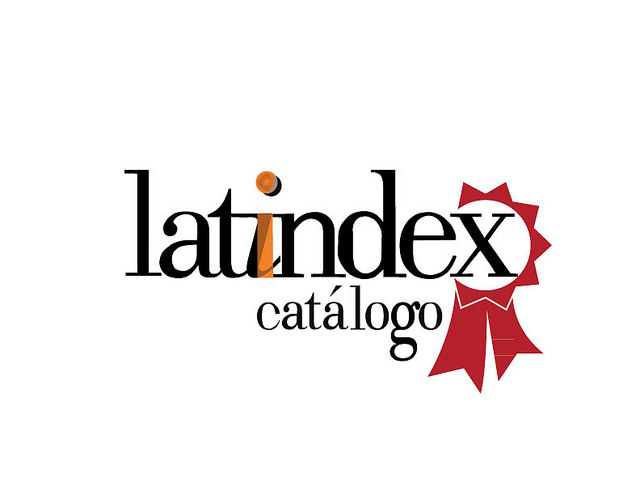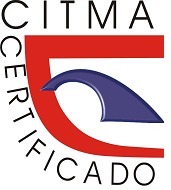Scientometric approach to research about education in the context of the COVID-19 pandemic
Keywords:
Scientometrics, Education, COVID-19, Pandemic, Educational trendsAbstract
The rapid spread of the COVID-19 pandemic affected all aspects of life. This reality led to the suspension of face-to-face educational activities and the total opening of the online teaching-learning process with alternative approaches and innovative research that needs to be examined in search of effective solutions. Faced with this problem, the present study aims to carry out a scientometric analysis of research about education in times of COVID-19 in 2020, which contributes to the intellectual representation of this scientific domain. The research is descriptive and uses a mixed methodology. The Web of Science Core Collection was used as the primary source of information. Scientometric indicators such as: co-authorship, co-occurrence analysis, citation, co-citation and bibliographic coupling were analyzed. The data was processed with the EndNote X9 reference manager and VosViewer. Of the total of 478 publications, the main journals are related to education in the medicine area and have high impact factors. The key research topics are related to the coronavirus description and the online teaching-learning process in the pandemic context. The high scientific production with a tendency to rapid growth, the preponderance of publications in high-impact journals, the tendency to increase the citations of articles and international collaboration, show the importance of research in education in the pandemic context, which is undoubtedly an indication of a promising future for this research field.
References
Aleixandre-Benavent, R., Agulló-Calatayud, V., Alonso-Arroyo, A., Bueno-Cañigral, F. J., Castelló-Cogollos, L., Lucas-Domínguez, R., … Valderrama-Zurián, J. C. (2021). Investigación española en las áreas de adicciones y de trastornos de la alimentación: análisis de la producción, colaboración e impacto científico (1962-2017). Revista Española de Documentación Científica, 44(3), e299. doi: 10.3989/redc.2021.3.1766
Cardona-Román, D. M., & Sánchez-Torres, J. M. (2017). Análisis cienciométrico de la producción científica acerca de la investigación sobre la evaluación de la implementación del e-learning en el periodo 2000-2015. Educación, 26(51), 7-34. doi: 10.18800/educacion.201702.001
Chick, R. C., Clifton, G. T., Peace, K. M., Propper, B. W., Hale, D. F., Alseidi, A. A., … Vreeland, T. J. (2020). Using Technology to Maintain the Education of Residents During the COVID-19 Pandemic. Journal of surgical education, 77(4), 729-732. doi: 10.1016/j.jsurg.2020.03.018
Garfield, E. (2001). From bibliographic coupling to co-citation analysis via algorithmic historio-bibliography. Philadelphia: Speech delivered at Drexel University.
Glänzel, W. (2002). Coauthorship Patterns and Trends in the Sciences (1980-1998): A Bibliometric Study with Implications for Database Indexing and Search Strategies. Library Trends 50(3), 461-473. Recuperado de http://hdl.handle.net/2142/8409
Huang, C., Wang, Y., Li, X., Ren, L., Zhao, J., Hu, Y., … Cao, B. (2020). Clinical features of patients infected with 2019 novel coronavirus in Wuhan, China. Lancet, 395(10223), 497-506. doi: 10.1016/S0140-6736(20)30183-5
Jebari, C., Herrera-Viedma, E., & Cobo, M. J. (2021). The use of citation context to detect the evolution of research topics: a large-scale analysis. Scientometrics, 126, 2971-2989. doi: 10.1007/s11192-020-03858-y
Li, J., Goerlandt, F., & Reniers, G. (2021). An overview of scientometric mapping for the safety science community: Methods, tools, and framework. Safety Science, 134, 105093. doi: 10.1016/j.ssci.2020.105093
Liskiewicz, T., Liskiewicz, G., & Paczesny, J. (2021). Factors affecting the citations of papers in tribology journals. Scientometrics, 126, 3321-3336. doi: 10.1007/s11192-021-03870-w
Mulenga, E. M., & Marbán, J. M. (2020). Is COVID-19 the gateway for digital learning in mathematics education? Contemporary Educational Technology, 12(2), ep269. doi: 10.30935/cedtech/7949
Murphy, M. P. A. (2020). COVID-19 and emergency eLearning: Consequences of the securitization of higher education for post-pandemic pedagogy. Contemporary Security Policy, 41(3), 492-505. doi: 10.1080/13523260.2020.1761749
Popyk, A. (2020). The impact of distance learning on the social practices of schoolchildren during the COVID-19 pandemic: reconstructing values of migrant children in Poland. European Societies, 23, S530-S544. doi: 10.1080/14616696.2020.1831038
Rose, S. (2020). Medical Student Education in the Time of COVID-19. JAMA, 323(21), 2131-2132. doi: 10.1001/jama.2020.5227
Roslee, A. F. A., Ahmad, S. A., Gomez-Fuentes, C., Shaharuddin, N. A., Khalil, K. A., & Zulkharnain, A. (2021). Scientometric Analysis of Diesel Pollutions in Antarctic Territories: A Review of Causes and Potential Bioremediation Approaches. Sustainability, 13(13), 7064. doi: 10.3390/su13137064
Santiago, A. L., Demajorovic, J., Rossetto, D. E., & Luke, H. (2021). Understanding the fundamentals of the Social Licence to Operate: Its evolution, current state of development and future avenues for research. Resources Policy, 70, 101941. doi: 10.1016/j.resourpol.2020.101941
Shoaib, M., Ali, N., Anwar, B., & Shaukat, B. (2021). Plotting the Literature on Learning Outcomes and Academic Performance in Higher Education from 2001 to 2020: A Scientometric Analysis. Library Philosophy and Practice (e-journal), 5919. Recuperado de https://digitalcommons.unl.edu/libphilprac/5919
Tan, H. R., Chng, W. H., Chonardo, C., Ng, M. T. T., & Fung, F. M. (2020). How Chemists Achieve Active Learning Online during the COVID-19 Pandemic: Using the Community of Inquiry (CoI) Framework to Support Remote Teaching. Journal of Chemical Education, 97(9). doi: 10.1021/acs.jchemed.0c00541
Torres‐Pruñonosa, J., Plaza‐Navas, M. A., Díez‐Martín, F., & Beltran‐Cangrós, A. (2021). The Intellectual Structure of Social and Sustainable Public Procurement Research: A Co‐Citation Analysis. Sustainability, 13, 774. doi: 10.3390/su13020774
van Eck N. J., & Waltman L. (2014). Visualizing Bibliometric Networks. En: Y. Ding, R. Rousseau y D. Wolfram (Eds.), Measuring Scholarly Impact. [versión electrónica de Springer, Cham]. doi: 10.1007/978-3-319-10377-8_13
Zayapragassarazan, Z. (2020). COVID-19: strategies for online engagement of remote learners. F1000Research, 9(273), 1-18. doi: 10.7490/f1000research.1117846.1
Zhao, T., Guo, J., Song, Y., Chen, H., Sun, M., Chen, L., … Sun, J. (2021). A Bibliometric Analysis of Research Trends of Acupuncture Therapy in the Treatment of Migraine from 2000 to 2020. Journal of Pain Research, 14, 1399-1414. doi: 10.2147/JPR.S306594
Zheng, F., Abbas Khan, N., & Hussain, S. (2020). The COVID 19 pandemic and digital higher education: Exploring the impact of proactive personality on social capital through internet self-efficacy and online interaction quality. Children and Youth Services Review, 119, 105694. doi: 10.1016/j.childyouth.2020.105694
Downloads
Published
How to Cite
Issue
Section
License
Copyright (c) 2022 Roelvis Ortiz Núñez, Stephany Novo Castro

This work is licensed under a Creative Commons Attribution-NonCommercial 4.0 International License.













